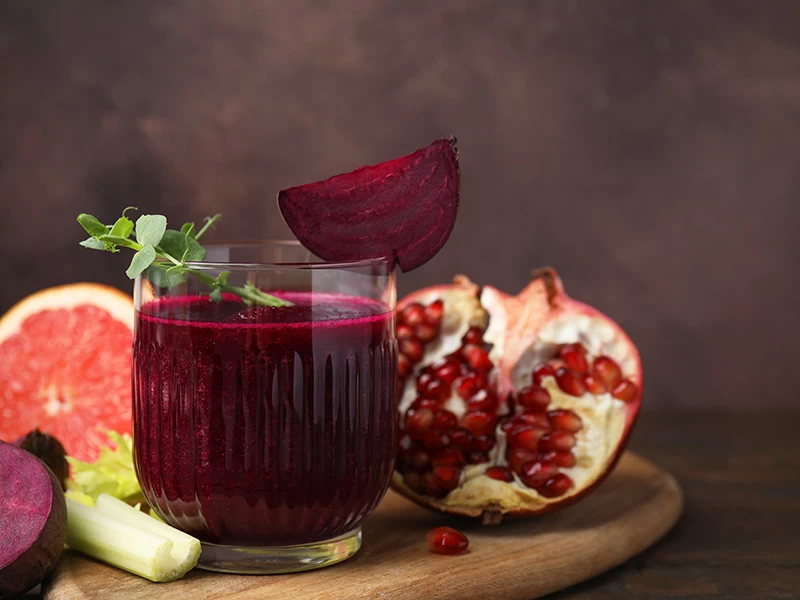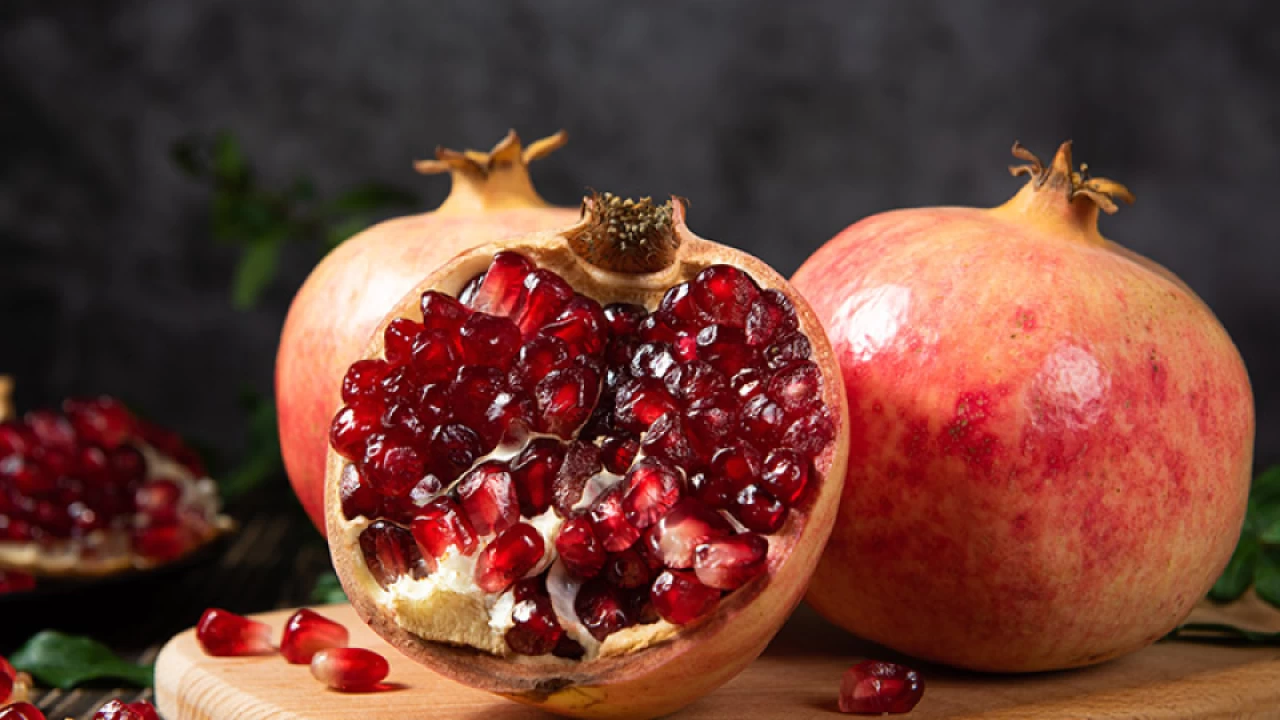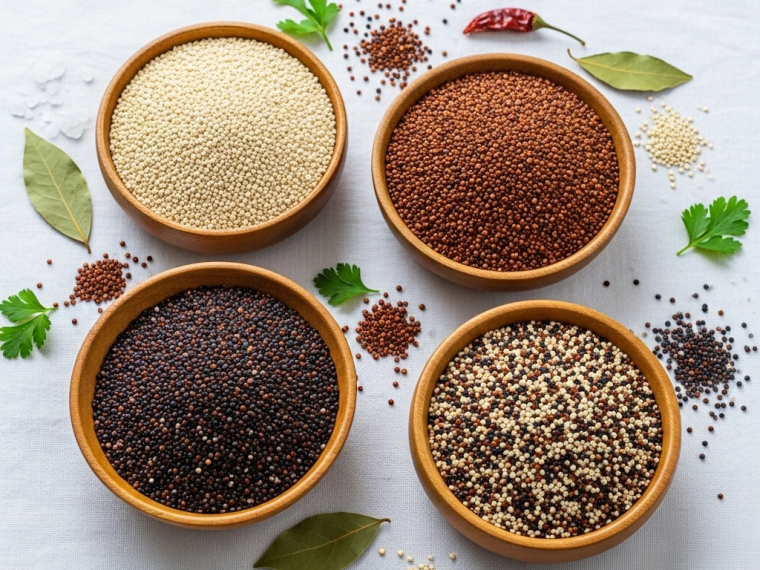Pomegranate, a valuable and nutrient-rich fruit, has long been recognized in traditional medicine for its numerous benefits for overall health, especially the liver. This fruit contains active compounds such as antioxidants, polyphenols, and various vitamins that can improve liver function and prevent issues like fat accumulation and inflammation. Given the high prevalence of fatty liver and its negative impacts on general health, utilizing the benefits of pomegranate in improving and preventing this problem is highly important. This article examines the unique features of pomegranate and its positive effects on fatty liver health.
History of Pomegranate
Pomegranate has been known as a symbol of health and vitality in various cultures since ancient times and has been used in traditional medicine in many Eastern countries. This fruit was initially cultivated in a region of Iran and India and then introduced to other parts of the world. Today, pomegranate is considered one of the powerful natural sources in combating liver and heart diseases, and scientific research also emphasizes its positive effects.
Benefits of Pomegranate Consumption for Fatty Liver

Consuming pomegranate has many benefits for fatty liver, as this fruit is rich in antioxidants, polyphenols, vitamin C, and other phytochemical compounds that help reduce inflammation, control blood fat levels, and protect liver cells from oxidative damage. These properties make regular consumption of pomegranate helpful in reducing fat accumulation in the liver and improving the function of this vital organ. Additionally, pomegranate strengthens the immune system and regulates blood sugar levels, significantly helping to prevent fatty liver disease and maintain liver health.
Reducing Liver Fat
Phytochemical compounds such as polyphenols and tannins in pomegranate can help reduce accumulated fats in the liver. These compounds, due to their anti-inflammatory and antioxidant properties, help strengthen liver health by preventing the formation of excess fat cells.
Strengthening Liver Health
Pomegranate contains strong antioxidants, including flavonoids and anthocyanins, which help strengthen liver health and improve its function. These antioxidants prevent liver cell damage, aid in cell regeneration, and increase the liver's resistance to diseases.
Reducing Liver Inflammations
Inflammation is one of the main factors in the progression of fatty liver. Pomegranate, with its natural anti-inflammatory properties, can help reduce inflammations associated with fatty liver. Regular consumption of pomegranate can prevent inflammatory damage and improve liver function.
Preventing Oxidative Damage

Antioxidants in pomegranate, such as polyphenols and flavonoids, help reduce oxidative damage and combat free radicals. These properties protect liver cells from damage caused by oxidation and contribute to overall liver health.
Regulating Blood Sugar and Fat Levels
Consuming pomegranate helps regulate blood sugar and fat levels, which is particularly important for patients with fatty liver. Controlling these risk factors can help reduce fat accumulation in the liver and improve its function.
Strengthening the Immune System
Pomegranate is rich in vitamin C and other antioxidants that can strengthen the immune system. By boosting the immune system, the body can better fight inflammatory diseases and infections related to the liver, which is essential for improving liver health.
Active Compounds in Pomegranate and Their Effects on Fatty Liver
Pomegranate contains important active compounds such as polyphenols, anthocyanins, tannins, and carotenoids that help liver health and prevent fatty liver. Polyphenols and tannins, with their strong antioxidant properties, protect liver cells from oxidative damage and reduce inflammation. Anthocyanins, which also contribute to the beautiful red color of pomegranate, are effective in regulating blood fats and preventing fat accumulation in the liver. Additionally, carotenoids, as anti-inflammatory and antioxidant compounds, help strengthen the liver and improve its function against oxidative stress. These compounds work together to have positive effects on liver health and can reduce the risk of fatty liver.
Polyphenols: Liver Protectors
Polyphenols are a group of antioxidant compounds found in pomegranate that are very effective in reducing oxidative damage. These compounds play an important role in strengthening liver health and reducing cellular inflammations, helping to prevent the progression of liver-related diseases.
Carotenoids: Fat-Reducing Soldiers
Carotenoids, including beta-carotene, are abundantly found in pomegranate and are known for their antioxidant properties, helping to reduce fat levels in the liver and the whole body. These compounds prevent the formation of excess fats in the liver and play a role in improving fatty liver symptoms.
Anthocyanins: Inflammation and Blood Fat Reducers
Anthocyanins, the pigments found abundantly in pomegranate, play an important role in reducing the complications of fatty liver. These compounds help improve liver function and reduce liver inflammations by lowering blood fat levels and increasing anti-inflammatory properties in the body.
How to Consume Pomegranate for Fatty Liver Improvement
Fresh Pomegranate Consumption: The simplest way to use the benefits of pomegranate is to consume the fruit directly. Eating one or two medium pomegranates daily can help provide the necessary antioxidants for the body.
Drinking Natural Pomegranate Juice: Drinking a glass of fresh, unsweetened pomegranate juice every morning can help cleanse the liver and reduce harmful fats. It is better to use homemade and natural pomegranate juice to fully preserve its benefits.
Adding Pomegranate to Foods: You can add pomegranate to foods like salads, yogurt, and even rice. This not only gives a pleasant taste to the foods but also adds the benefits of pomegranate to your diet.
Using Natural Pomegranate Paste: Pomegranate paste, due to its preserved antioxidant properties and active compounds, can also be effective in reducing inflammation and fat accumulation in the liver. It is recommended to use natural and unsweetened pomegranate paste to benefit from this product.
Benefits of Pomegranate Juice and Peel for Fatty Liver
Pomegranate Juice: Pomegranate juice is one of the best natural drinks for strengthening the liver. This drink, due to its strong antioxidants, helps reduce liver inflammations and maintain liver health. Drinking a glass of pomegranate juice daily, especially in the mornings, can be beneficial for liver health.
Pomegranate Peel: Pomegranate peel also has antibacterial and antioxidant properties that can help strengthen the liver and prevent fat accumulation in it. The peel can be dried and used as tea or infusion.
Recipe for Pomegranate Smoothie and Mixture for Fatty Liver
Pomegranate and Spinach Smoothie
|
Ingredients |
Specific amount |
|
Pomegranate |
1 |
|
Spinach |
1 cup |
|
Banana |
1 |
|
Water |
½ cup |
Preparation: Put all ingredients in a blender and mix well until smooth. This smoothie is rich in antioxidants and nutrients that help improve liver health.
Pomegranate and Ginger Mixture
|
Ingredients |
Specific amount |
|
Pomegranate |
1 |
|
Fresh Ginger |
1 teaspoon |
|
Honey |
1 tablespoon |
|
Water |
1 cup |
Preparation: Put all ingredients in a blender and mix. This mixture, besides its pleasant taste, helps cleanse the liver and reduce its inflammations.
Conclusion
Due to its compounds such as polyphenols, anthocyanins, vitamins, and other nutrients, pomegranate is considered one of the suitable options for improving and preventing fatty liver. Daily consumption of pomegranate in the form of fresh fruit, juice, paste, or various mixtures can help reduce liver fat, strengthen its health, and prevent oxidative damage. However, pomegranate should be consumed as part of a healthy diet and active lifestyle to have the best effects on liver health.
Frequently Asked Questions
- Is pomegranate beneficial for fatty liver?
Yes, pomegranate, due to its antioxidant and anti-inflammatory properties, can be effective in improving and preventing fatty liver.
- How much pomegranate should be consumed?
It is recommended to consume one medium pomegranate or one glass of pomegranate juice daily.
- Is pomegranate paste beneficial for fatty liver?
Yes, natural pomegranate paste can help reduce liver inflammations and fats due to its beneficial compounds.





